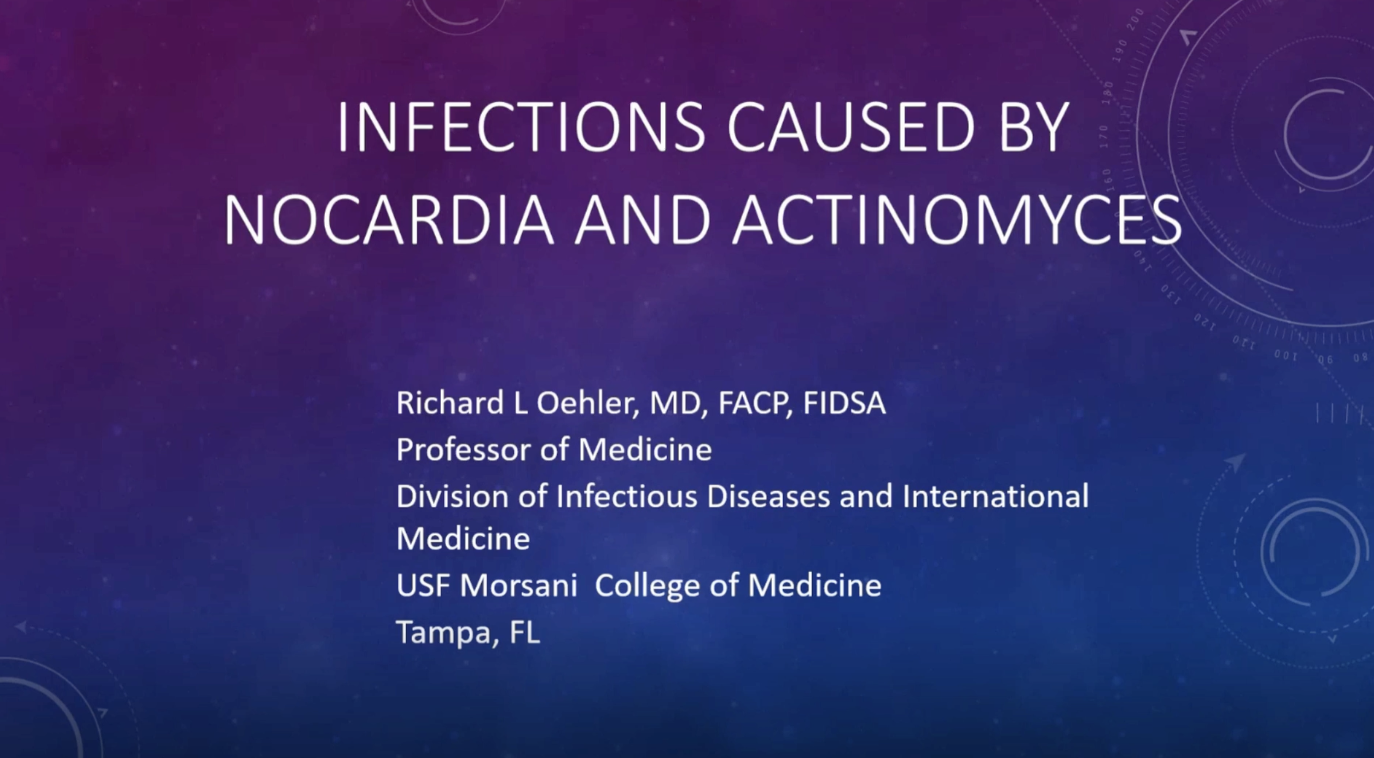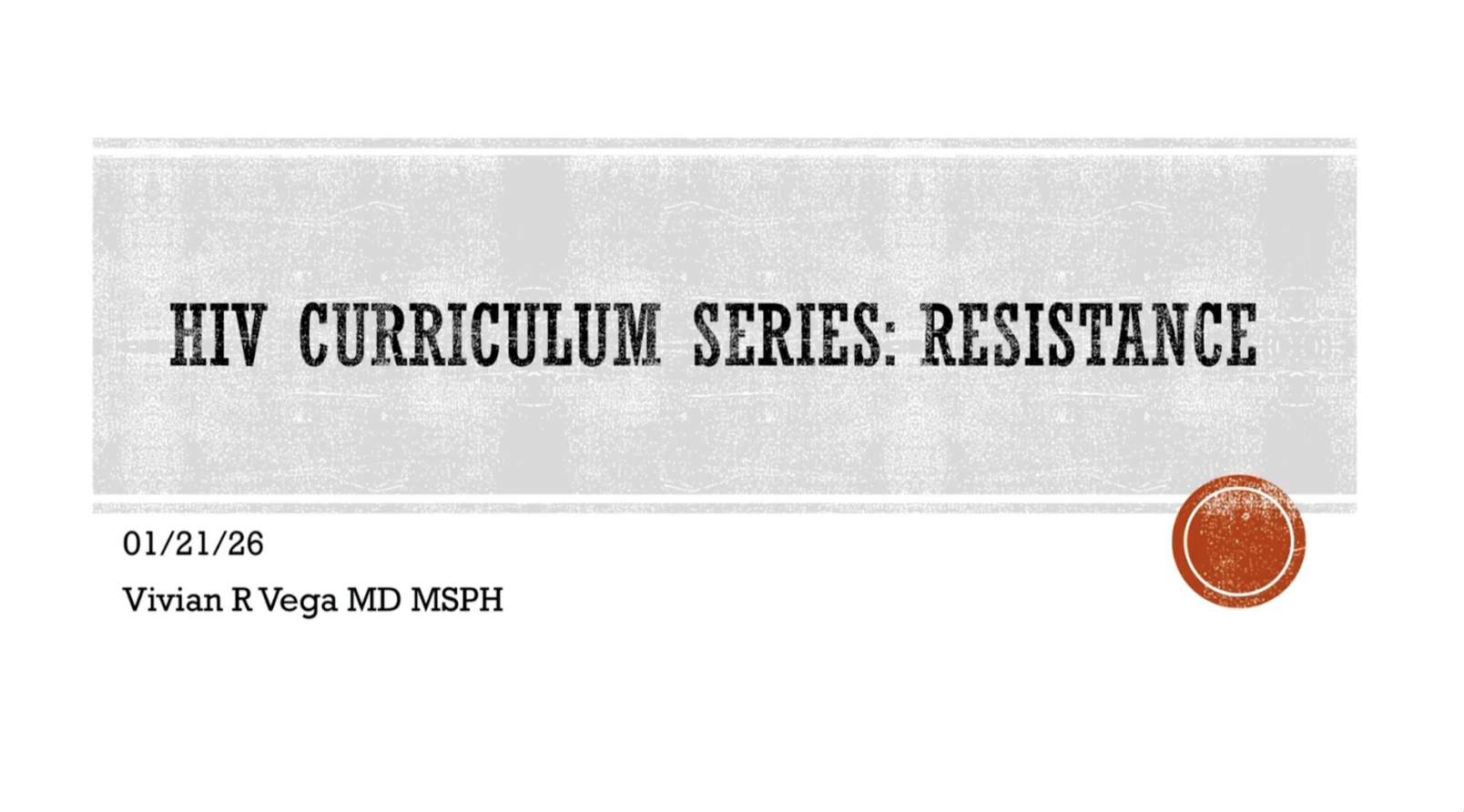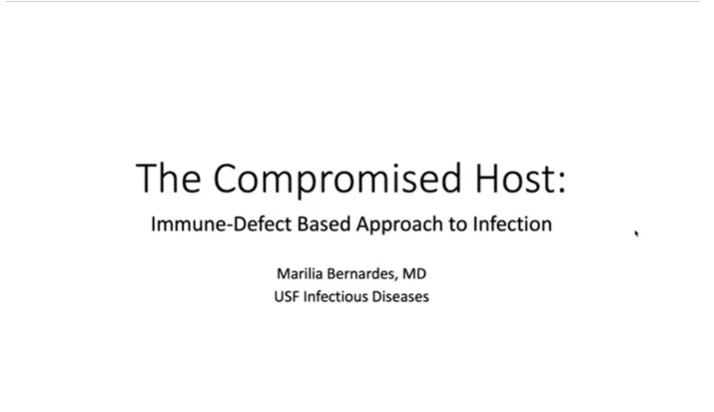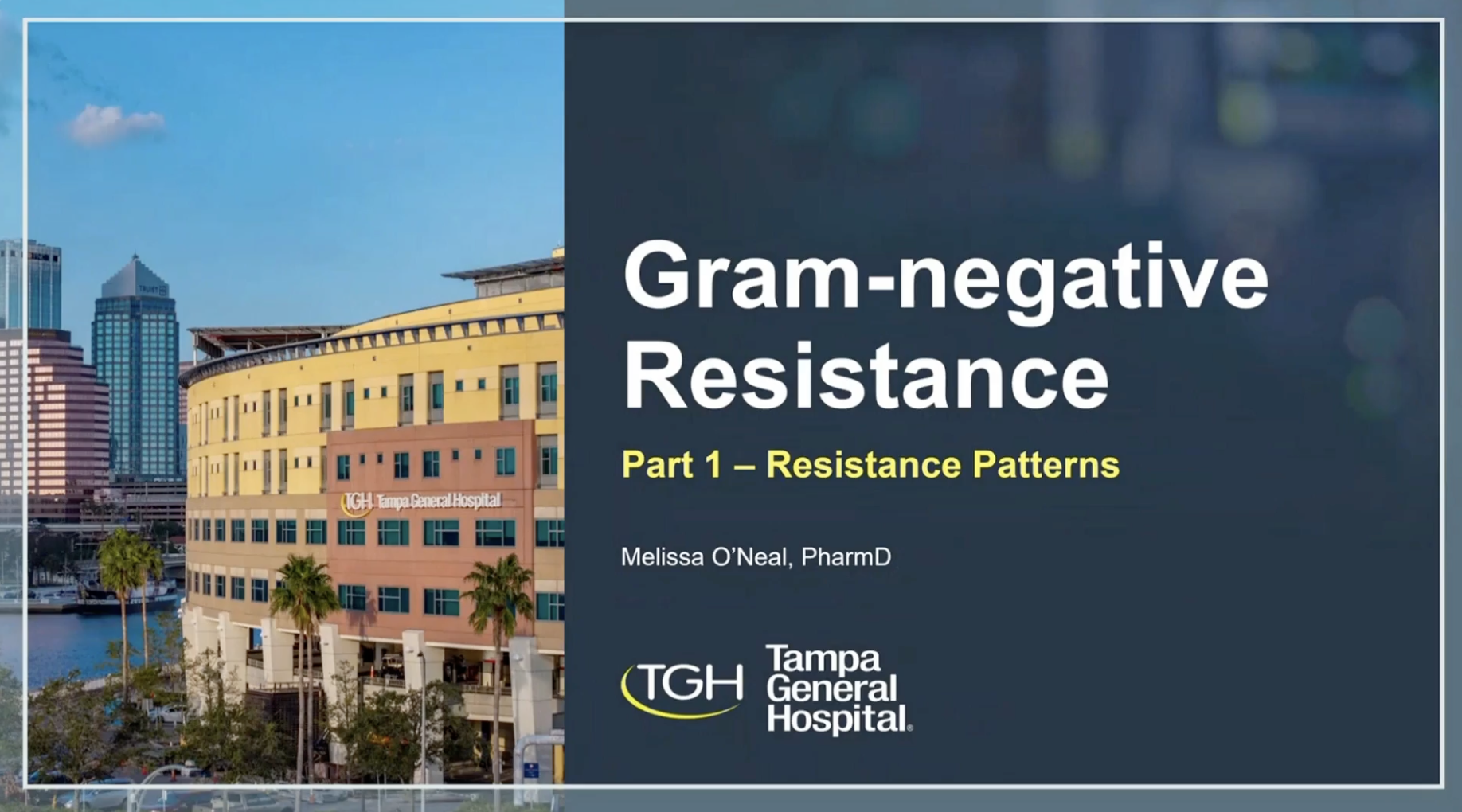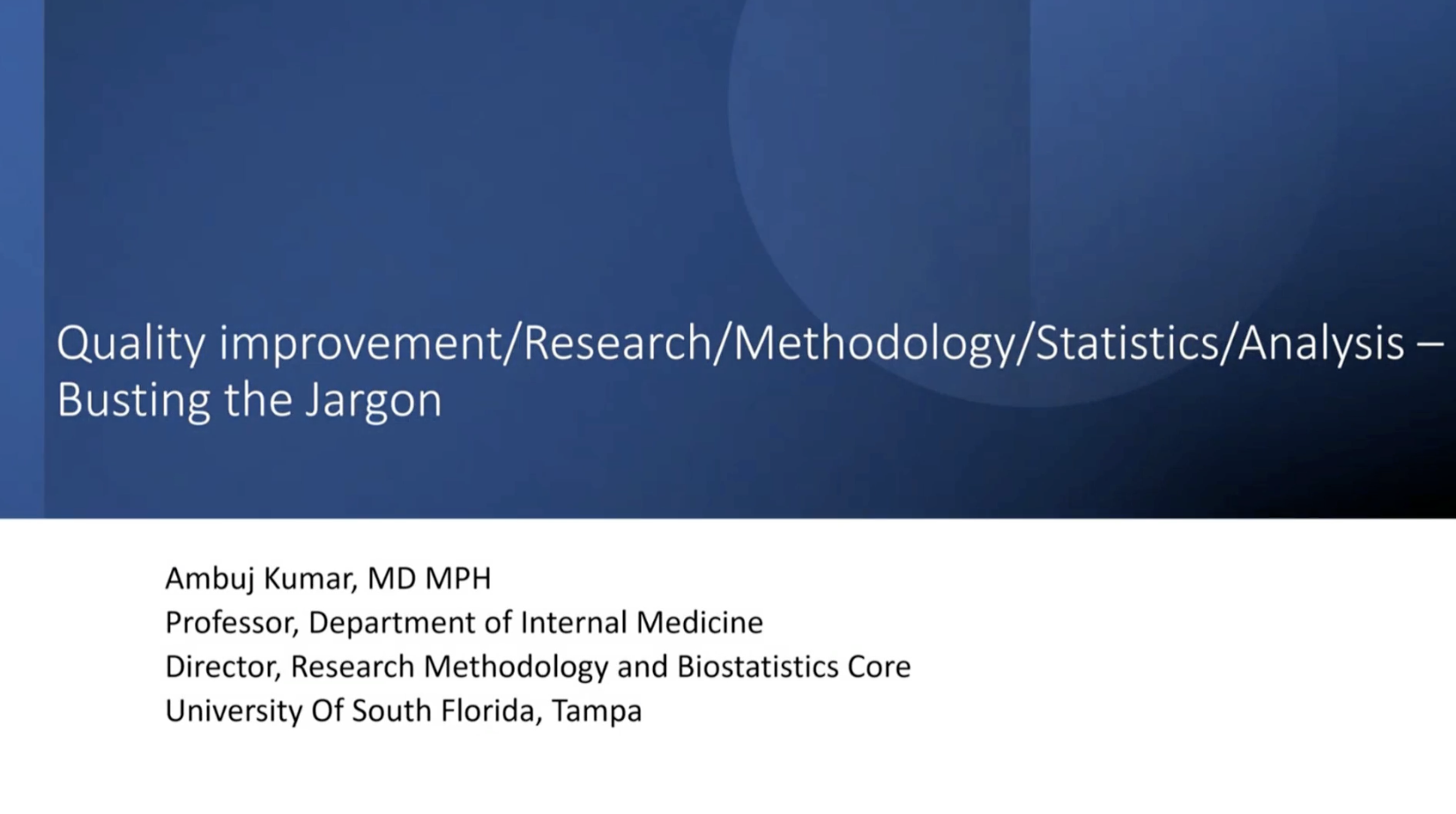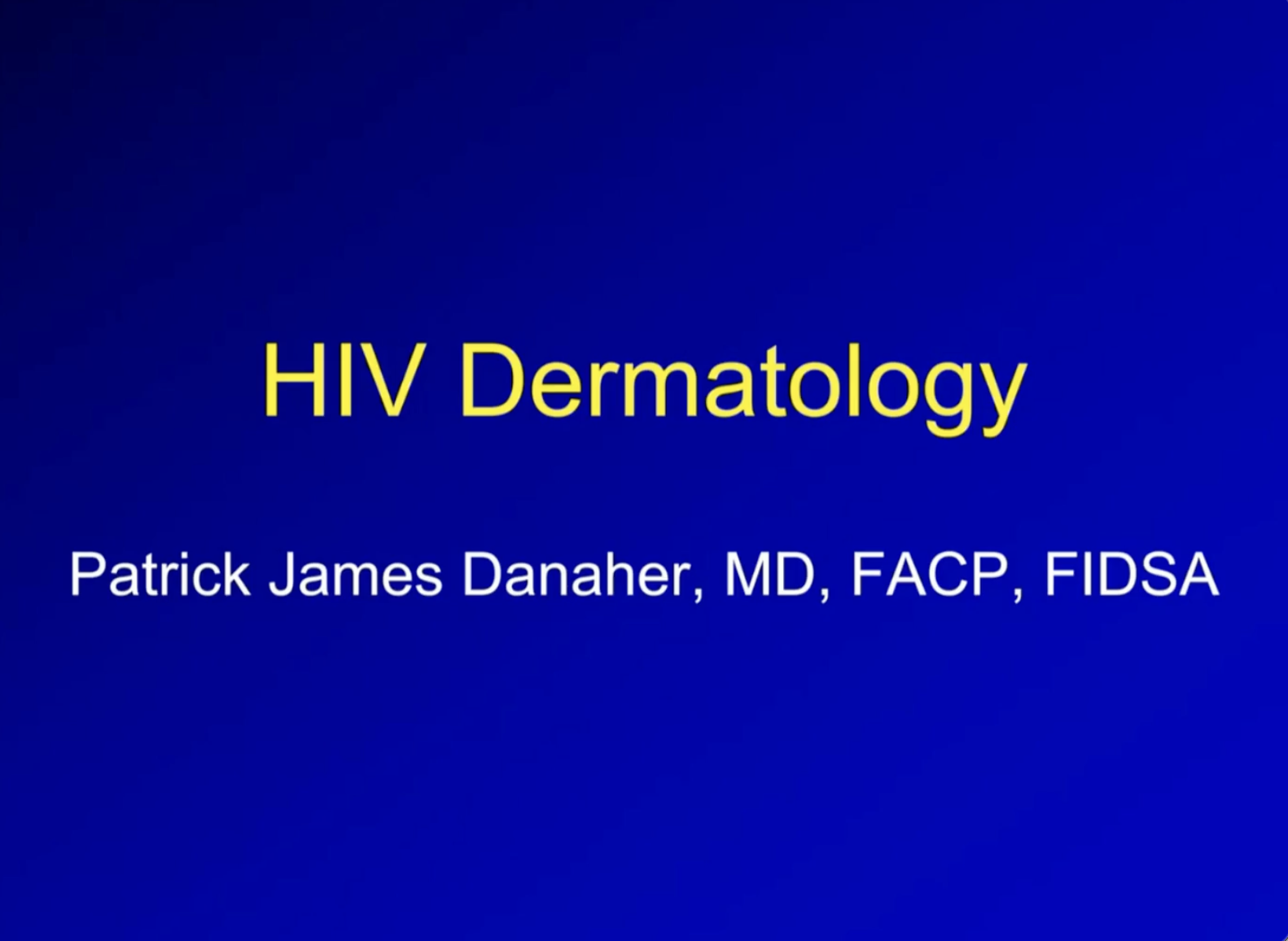Dr. Richard Oehler, Professor of Medicine at the Division of Infectious Diseases and International Medicine, Morsani College of Medicine at USF, presents this updated overview of Nocardia and Actinomyces, two closely-related gram positive filamentous rods which have distinct differences. In his presentation, Dr. Oehler initially covers Nocardiosis, followed by Actinomycosis, and compares and contrasts both and how they produce human infection. Topics covered for both infections include their taxonomy, epidemiology, types of patients infected, infectious syndromes, potential complications, recommended therapies, and duration of treatment. At the end of the talk both Nocardiosis and Actinomycosis are directly compared to help summarize the important learning points presented.
Latest Podcasts
HIV Curriculum Series: Resistance
Dr. Vivian Vega, Infectious Diseases clinician with the USF Morsani College of Medicine, presents a focused look at how to interpret HIV resistance patterns in clinical practice. Among the topics discussed include what constitutes a drug mutation, the specifics of having a high resistance barrier, when to obtain a genotype, and when to add an integrate inhibitor genotype. Lastly, specific classic mutations to memorize are discussed.
HIV Pre-exposure Prophylaxis Strategies
Dr. Lauren Rybolt, Assistant Professor of Medicine at the USF Morsani College of Medicine, presents a talk on how to to tailor strategies for Pre-exposure prophylaxis, or “PREP,” to the individual patient. Dr. Rybolt begins by discussing USPSTF recommendations. She then moves on to compare and contrast the currently available options for PREP therapy, including TDF/FTC versus TAF/FTC, Cabotegravir, and Lenacapavir. Dr. Rybolt then discusses laboratory monitoring while on the drugs and modifications of PREP therapy in a patient who also has chronic hepatitis B. She closes with her final points regarding the individualization of PREP treatment and the need to continuously assess the patient’s ongoing risk factors.
The Compromised Host: Immune Defect-based Approach to Infection
Dr. Marilia Bernardes, Infectious Diseases Faculty at the Morsani College of Medicine in Tampa, FL, presents an overview of the immune system. Dr. Bernardes skillfully breaks down the immune system into 4 distinct pillars and then its individual biological components. She presents the “who,” “what” and “why” for neutrophils, B-cells, and T cells and covers cellular and humoral immune deficits. She also covers newer immunotherapies such as BTK inhibitors, CAR-T and bispecifics, as well as biologics and other small molecules. Some rapid-fire cases are also presented to integrate the listener’s understanding of the material presented.
Gram Negative Resistance
Dr. Melissa O’Neal, ID Clinical Pharmacist at Tampa General Hospital, provides an overview of gram negative resistance in this fast-paced presentation. Dr. O’Neal begins by describing the general mechanisms of antimicrobial resistance, including cell-wall dependent mechanisms and chromosomal mechanisms. She covers the alteration of membrane porins, over expression of efflux pumps, mutations of drug binding sites, and the production of enzymes that degrade antimicrobials. Next, the speaker covers the beta-lactamases, enzymes that degrade beta-lactam antibiotics, including penicillins, cephalosporins, and carbapenems. The Ambler class classification system is also covered, which offers a helpful way to differentiate the beta-lactamases by type of antimicrobial affected. Amp C resistance is also reviewed, and examples are provided, Lastly, specific bacterial resistance mechanisms are reviewed by each gram negative organism in order to help with knowledge retention.
Candidiasis
Dr. Olga Klinkova, Infectious Diseases Clinician at the Moffitt Cancer Center and Research Institute, presents a talk on Candida Infections. Dr. Klinkova begins by discussing the epidemiology of Candida. She then touches upon the importance of biofilms on the pathogenicity of Candida strains. Next, she breaks down the individual Candida species and highlights unique characteristics of each one. Following this, she presents several unique cases of human Candida infections and through the cases, highlights Candida auris, oropharyngeal candidiasis, esophageal disease, and candidemia. Lastly, she closes with information on hepatosplenic candidiasis.
Research Methodology: Beyond the Jargon
Dr. Ambuj Kumar, Professor of Medicine with the USF Morsani College of Medicine, shares his perspectives on how to create and conduct a clinical research study. Among the topics discussed includes study design, the distinctions between randomized controlled trials, case-control studies, and retrospective cohort trials, and how to frame the proper clinical question for study development. The importance of having timely and specific communication, teamwork, and respecting deadlines is also emphasized.
HIV Dermatology 2025
Dr. Patrick Danaher, Infectious Diseases Clinician at the USF Morsani College of Medicine, discusses the various dermatologic manifestations of HIV in this recorded session. Among the topics discussed includes genital herpes disease, Zoster, Mpox infections, MRSA skin lesions, and Kaposi sarcoma. The lecture is presented in a case-based interactive format and is updated for 2025
